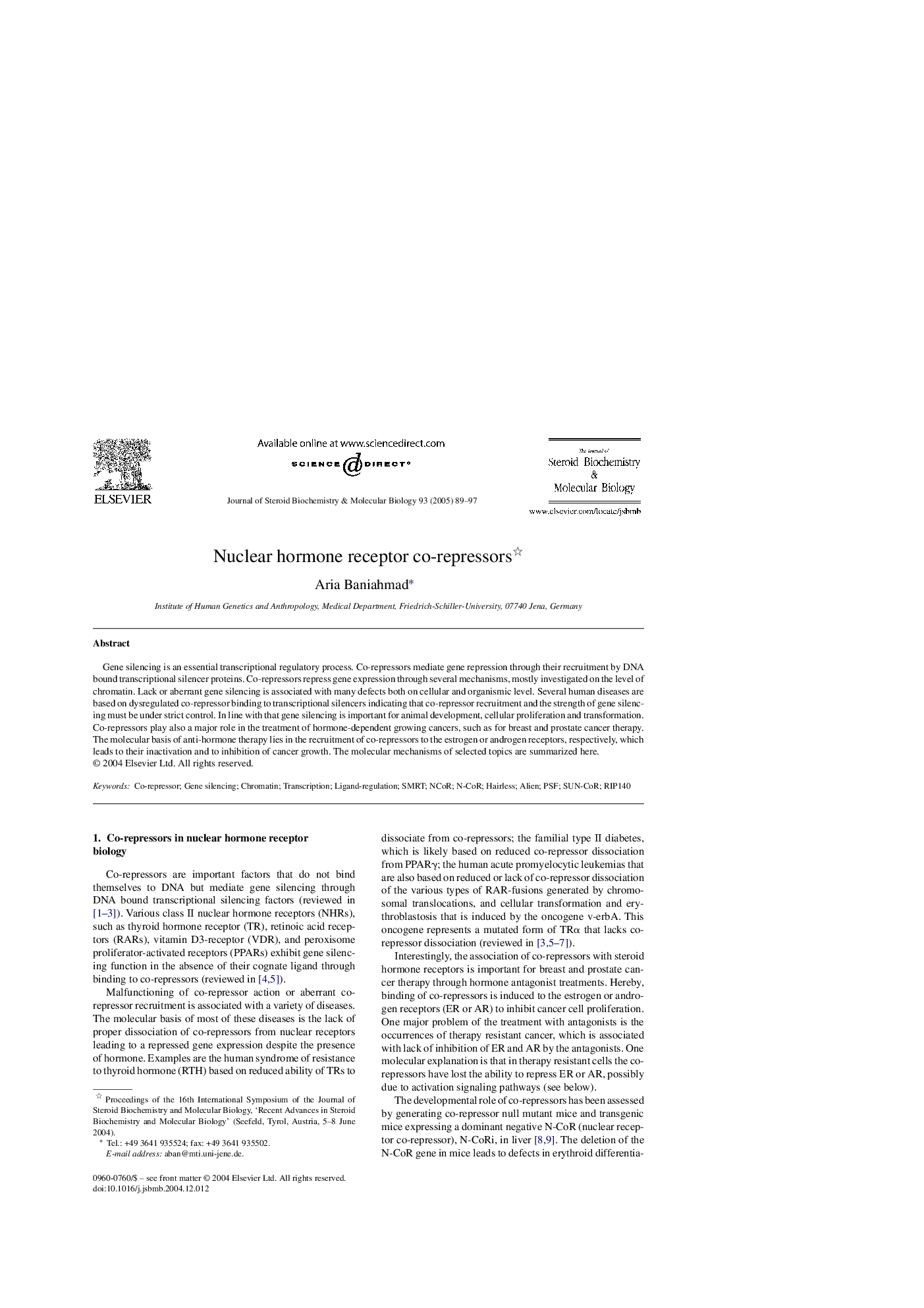| Article ID | Journal | Published Year | Pages | File Type |
|---|---|---|---|---|
| 9892207 | The Journal of Steroid Biochemistry and Molecular Biology | 2005 | 9 Pages |
Abstract
Gene silencing is an essential transcriptional regulatory process. Co-repressors mediate gene repression through their recruitment by DNA bound transcriptional silencer proteins. Co-repressors repress gene expression through several mechanisms, mostly investigated on the level of chromatin. Lack or aberrant gene silencing is associated with many defects both on cellular and organismic level. Several human diseases are based on dysregulated co-repressor binding to transcriptional silencers indicating that co-repressor recruitment and the strength of gene silencing must be under strict control. In line with that gene silencing is important for animal development, cellular proliferation and transformation. Co-repressors play also a major role in the treatment of hormone-dependent growing cancers, such as for breast and prostate cancer therapy. The molecular basis of anti-hormone therapy lies in the recruitment of co-repressors to the estrogen or androgen receptors, respectively, which leads to their inactivation and to inhibition of cancer growth. The molecular mechanisms of selected topics are summarized here.
Related Topics
Life Sciences
Biochemistry, Genetics and Molecular Biology
Biochemistry
Authors
Aria Baniahmad,
